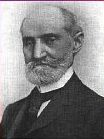Fever
Characteristic – For children, especially young girls who are excitable, nervous and weak, nervous affections of old people, nerves worn out.
Lean, thin, emaciated persons who take cold easily.
Great sadness, sits for days weeping.
After business embarrassments, unable to sleep, must get up (Actea, Sepia).
Ranula with fetid breath (Thuja).
Sensation of coldness in abdomen (Aethusa, Calcarea).
The presence of others, even the nurse, is unbearable during stool (while urinating, Nat.m. ), frequent, ineffectual desire, which makes her anxious.
Discharge of blood between periods, at every little accident – a long walk, every hard stool, etc.
Leucorrhea, thick, blush – white mucus, especially, or only, at night (Causticum, Mercurius, Nit.ac.).
Violent cough in spasmodic paroxysms, with eructations and hoarseness, worse talking or reading aloud (Drosera, Phosphorus), evening without, morning with expectoration (Hyoscyamus), whooping – cough, but without crowing inspiration.
Aggravation: Warm drinks, warm room, lying down, at night, too little sleep, the presence of others during stool.
Amelioration: After eating, cold air, cold room and drinks.
Type: No periodicity
Time: In the forenoon. Fever, without chill, 7 to 8 P.M.
Chill: Of single parts of body, with heat of face. Chill, with lassitude and sleepiness, ameliorated by eating (sweat ameliorated by eating, Anacardium ), chills before dinner. Skin of whole body, except face, neck and genitals, cold (ice cold genitals, Sul. ). Coldness of left hand, with headache.
Heat: In face and over the whole body every quarter of an hour, most violent from 7 to 8 o’clock in the evening.
Sweat: Profuse night – sweat, aggravated after midnight, the body being warm. Sweat every morning, worse on affected side (Ant-t.). Profuse sweat of abdomen and thighs (during exercise).
Analysis – Chill: of single parts, ameliorated by eating.
Sweat: Profuse, of affected parts, aggravated on affected side.
Should not be given in the evening, apt to produce nightly aggravation.

